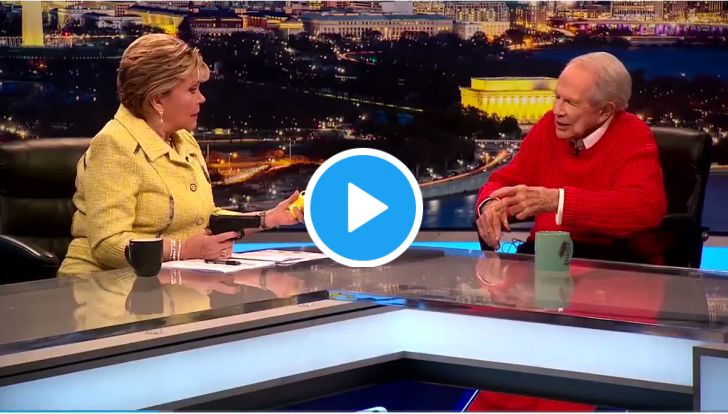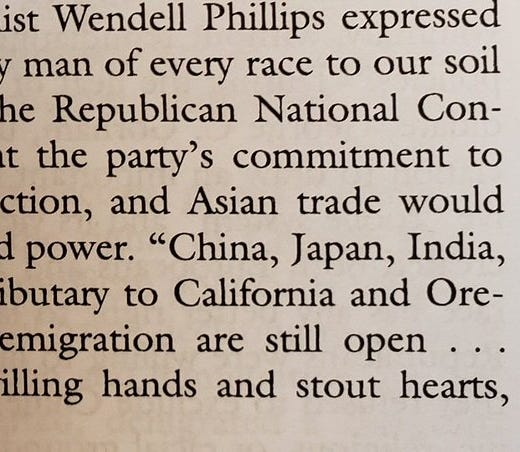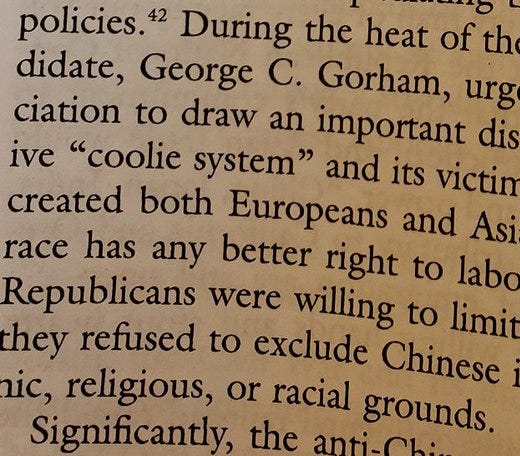Wokeness as old-time American religion
An old, crusading faith returns.
“In the beauty of the lilies Christ was born across the sea,
With a glory in His bosom that transfigures you and me.
As He died to make men holy, let us die to make men free,
While God is marching on.”
— Julia Ward Howe, “Battle Hymn of the Republic”
This is the second of a series of posts in which I try to think about “wokeness” — the collection of social justice movements, discourse, and attitudes that has risen to prominence in America since around the mid-2010s. In the first post, “Wokeness as respect redistribution”, I argued that America’s culture had become increasingly incompatible with the demographic and economic changes in the country, and that wokeness arose in part as a way to try to resolve that contradiction. But I don’t think that’s the whole story. Though there were new reasons for wokeness to emerge, the idea itself is not entirely new — it’s a modern manifestation of some very old American impulses and ideologies. I see it essentially as a combination of abolitionism and Protestant Christianity.
The anti-woke story of wokeness’ origins
Among the people who publicly and loudly oppose wokeness, a particular story about the ideology’s origins has become conventional wisdom. Their story is that wokeness is a branch of Marxism, modified to emphasize cultural rather than economic issues. This modification, they believe, was chiefly done by the Frankfurt School, an early 20th century group of European leftist scholars. James Lindsay, one of the chief anti-woke shouters on Twitter, constantly refers to the Frankfurt School and to related thinkers like Gramsci as the supposed creators of social justice, critical race theory, and other terms that he uses interchangeably with “wokeness”:
There are many more examples; I could keep going. Lindsay wrote a book about this origin story, but he’s hardly alone in believing it; the Daily Signal, the Heritage Foundation, and many others make the same claim.
Wokeness, the anti-wokes believe, is therefore a foreign, communist imposition — an alien idea that successfully wormed its way into America and subverted the country’s traditional values.
To be blunt, I do not buy this origin story at all. It’s certainly true that within academia, some of the academics who invented Critical Race Theory and Critical Legal Studies saw themselves as more closely allied to so-called Critical Marxists like the Frankfurt School than to traditional Marxists. And to gain respect within the academy, scholars of Critical Race Theory certainly had to cite some scholars who came before them, and the Frankfurt School people were probably the most convenient to cite.
But that doesn’t mean CRT was actually inspired by the Frankfurt School. As any academic who has dealt with the dreaded Reviewer 2 knows all too well, citations are often an institutional genuflection rather than an indicator of true intellectual influence. Instead, as this excellent essay by Bradley Mason explains, they were inspired by the Civil Rights movement, the Black Power movement, and the abolitionist movement that had come before.
Just to check, I asked some very woke friends in a humanities department what authors woke academics read for inspiration, and received the following list:
W.E.B. Du Bois
Zora Neale Hurston
Ralph Ellison
James Baldwin
Frantz Fanon
Sylvia Wynter
Audre Lorde
June Jordan
Angela Davis
Patricia Hill Collins
Cornel West
Kimberlé W. Crenshaw
Combahee River Collective
From talking to other woke friends, I might append some additions to the list:
Karen E. Fields and Barbara J. Fields
Roxane Gay
Ta-Nehisi Coates
Ibram X. Kendi
None of the Frankfurt School authors are listed here. All of these authors are Black, and most are Black Americans. And that should remind us of a very important fact: Black Americans have been thinking very hard about how to change American society for a very long time. To focus on the scholarly contributions of some European leftists is to ignore the much richer veins of Black thought that have been in America for centuries.
And anyone who knows woke White people knows that they take great pains to read, pay attention to, and elevate Black intellectuals and writers. When asked about the Frankfurt School, in contrast, they are typically equivocal and dismissive. (One friend simply responded: “Adorno hated jazz.” It’s true, he did!)
Now, you could argue that the ideas of the Frankfurt School were lurking in the background the whole time, pulling the intellectual strings. That’s a fairly unfalsifiable thesis, so I’ll counter it with one of my own: That’s not how social movements work. The force lurking in the background of academic thought isn’t other academic thought; it’s popular social movements and the exigencies of contemporary politics. For the critical race theorists of the 1970s, as Mason notes, contemporary politics meant a desire to fight back against the Reagan Revolution and continue the work of the Civil Rights and Black Power movements.
But even more importantly, wokeness is much, much more than Critical Race Theory. CRT is simply a nerdy fringe that hovers at the edge of the movement. At the street level, activists are reading Coates, not Adorno or Marcuse. A few ideas and attitudes may make it into their lexicons and worldviews from musty old European intellectuals, but most of street ideology is spontaneously generated at the street level.
And for many woke people — especially the White people who numerically make up the bulk of the woke movement — that street ideology springs from a very old American tradition. It comes from the abolitionist movement, which itself was heavily influenced by Protestant Christianity.
Christian abolitionism and the Great Awokening
The other day, in the wake of Derek Chauvin’s murder conviction, House Speaker Nancy Pelosi tweeted this:
The statement was obviously tone-deaf, and was roundly condemned. George Floyd was a murder victim, not a martyr; he did not choose to sacrifice his life for the sins of America. But I think the framing here, which clearly comes from the New Testament, points to the Christian origins of wokeness.
The abolitionist movement of the 18th and 19th centuries was the original wokeness. That movement, which was begun by Christian activists, entailed a crusading desire to help Black people break the bonds society had placed on them. Abolitionist ideas were spread by Congregational Christian churches, as part of the Second Great Awakening (and by Quakers and, eventually, the Catholic Church). Though Christian denominations in the South became co-opted into supporting the slavery system, outside the South, Christianity remained the locus of opposition. One reason for this was that Black clergymen sometimes preached to White congregations, and inveighed against slavery in religious terms.
So many abolitionist origin stories involve Christianity. William Wilberforce, Britain’s greatest abolitionist, was a member of the anti-slavery Clatham Sect of the Anglican Church. In the U.S., a Presbyterian reverend, John Rankin, was one of the key abolitionists. He was an important figure in the Underground Railroad, and his writings helped convert other famous abolitionists like William Lloyd Garrison, Theodore Weld, and Harriet Beecher Stowe to the cause.
John Brown, too, has a Christian origin story. He wanted to be a minister, but had to stop his studies because of eye inflammation. He later set up a Congregationalist church as a locus of anti-slavery activity. When he carried out his raid on Harper’s Ferry and attacked slaveowners, Brown couched his crusade in explicitly religious terms. It is impossible not to see echoes of John Brown in the BLM protesters who charged police lines and got their eyes were shot out in order to fight against a system they felt was destroying Black lives.
The Black conservative writer John McWhorter is a critic of wokeness, but in a pair of essays in 2015 and 2020, he clearly identified the Christian motifs that pervade the woke movement. It’s not just about the kneeling. Just as Christianity holds that Jesus suffered and died for the sins of humanity, wokeness centers around the idea that marginalized people — especially Black people, but many other groups as well — suffer and die for America’s inherent racism, misogyny, and other injustices. Christianity uses Jesus’ sacrifice to motivate Christians to make their own sacrifices in the eternal struggle against sin, even as it stipulates that they themselves can never be free from sin; wokeness uses the suffering of the marginalized to motivate White people to make their own sacrifices in the eternal struggle against racism and other injustices, even as it stipulates that they themselves can never be free from racism. And so on.
McWhorter, remember, is laying this out as a criticism. And to many liberal Americans, long accustomed to thinking of political Christianity as a right-wing opponent, associating wokeness with Christianity might seem like an indictment. But it’s important to remember that religious or quasi-religious zeal has always been an important motivator of social movements, from any side of the political spectrum. Humans might not need faith in the ineffable in order to motivate them to crusade for a better world, but it almost always helps. And wokeness doubtless gives meaning and purpose to many young Americans for whom actual Christianity is a distant memory and for whom the only other alternative is a crass, dissatisfying consumerism.
Nor is wokeness the only movement that has combined Christian ideas with a zeal for battling social injustice; various forms of liberation theology are common throughout the Christian world.
And remember also that Christianity began its existence as a movement for the marginalized. Even among right-wing Christians, some sliver of that impetus remains:
Wokeness is very American
Beyond its Christian-derived elements, wokeness is simply an American tradition, gaining strength from the country’s history of democracy and reform movements. Read through American history, and you can find plenty of examples of famous Americans exhibiting sentiments we would now recognize as woke. Ralph Waldo Emerson, who was a dedicated abolitionist, had this to say about the Civil War:
In the early days of the War of the Rebellion [Emerson] visited Charlestown Navy-Yard to see the preparations, and said, "Ah! sometimes gunpowder smells good." In the opening of his address at Tufts College, in July, 1861, he said, "The brute noise of cannon has a most poetic echo in these days, as instrument of the primal sentiments of humanity."
Then there were the Wide-Awakes, a 500,000-strong militant abolitionist youth movement that sprang up in the North before the Civil War.
(The word “woke” doesn’t actually come from the Wide-Awakes, but it’s interesting that the same word and concept keeps popping up.)
The Radical Republicans of the Civil War and post-Civil War era had many attitudes that today we would think of as woke. They even supported open borders, holding that nonwhite immigrants were equal to White immigrants:
The Civil Rights and Black Power eras of the 50s, 60s and 70s were accompanied by an explosion of wokeness; many of the same sentiments animating today’s BLM movement were present among the activists, protesters, hippies, radicals, and other assorted dissenters of that age. And remember that Critical Race Theory itself got its start in the 70s.
In fact, the very American-ness of wokeness is one of the main things that wokeness gets wrong! In an interview with the World Socialist Website, Civil War historian James McPherson criticized the 1619 Project by pointing out that anti-racism is a key part of America’s cultural DNA:
[O]pposition to slavery, and opposition to racism, has also been an important theme in American history…
From the Quakers in the 18th century, on through the abolitionists in the antebellum, to the radical Republicans in the Civil War and Reconstruction, to the NAACP which was an interracial organization founded in 1909, down through the Civil Rights movement in the 1950s and 1960s, there have been a lot of whites who have fought against slavery and racial discrimination, and against racism. Almost from the beginning of American history that’s been true…
[T]here was also a more social dimension to the American Revolution…it coincided with, and partially caused, the abolition of slavery in half of the states, the northern states, as well as a manumission movement among Virginia slaveholders…Out of the Revolution came an anti-slavery ethos, which never disappeared[.]
Wokeness is thus neither a European Marxist invasion nor a recent concoction; it has been with us from the beginning, an impulse woven into American society at the deepest level. It will be with us always, too; just as this is not the first Great Awokening, it will not be the last.
Who can push back against a crusading faith?
But even though wokeness is American as apple pie, its quasi-religious nature raises an important question: How can people push back effectively against its excesses?
Because even though there was a reason for its reemergence, wokeness does have plenty of excesses. The next post in this series will go into those in greater detail, but they’re numerous enough — the identification of positive traits like hard work and progress with whiteness, inappropriate cultural gatekeeping, creepy and potentially counterproductive corporate training sessions, San Francisco school board members saying inappropriate things, stupid performative crap of various kinds, the errors in the 1619 Project, and so on and so forth. I’m not about to join James Lindsay and the anti-wokes; I view woke overreach as an annoyance rather than a crisis at this point, and there are much bigger problems in America. But the existence of these excesses does raise the question of how reasonable, sober-minded Americans can push back, to keep them from growing out of hand.
The more a movement is animated by the burning inner light of faith, the harder it is to criticize it. Not only does faith not admit even the smallest criticism in the intellectual sense, but it often summons a rapid and militant reaction when criticized. Just ask any of the people who fought to keep conservative Christianity out of public schools in small Southern towns in the 1980s and 90s!
“Religion” shouldn’t be an epithet, but it is true that religious and quasi-religious movements are very tough to deal with in the public sphere. Separation of church and state gave America a bit of institutional pretext to restrain the power of political Christianity, but wokeness has no church, and there is nothing to separate it from the state. The same force of belief that makes wokeness so powerful in pushing through social and cultural changes will lead to bruising, exhausting political battles in America for decades to come.









Love the historical angle.
I think what's most interesting is that we're basically having a revival without religion. Secular revivalism! While I absolutely detest the absurd Cultural Marxism Hypothesis, it's not hard to observe that Marxist revolutions/governments often did have movements with secular and revivalist elements. In the West, we don't often think of them as "revivals", but the Cultural Revolution was essentially an attempt to harness youth energy into stochastic violence to help Mao consolidate his power. Mao framed it as a moral awakening of the youth to return to purer forms of traditional communist class struggle.
But it's absolutely agreed that the origins of the Great Awokening are deeply American and Protestant, not Marxist.
If anything, the secular aspect is merely the culmination of other long-term trends with roots in American and Protestant history. Protestantism has always been associated with cosmopolitanism and individualism. The individualism was a defining aspect and driver of earlier American Protestant revivals. But moreover, its focus on an individualist relationship with the divine at the expense of a communal one, means that once the individual choices shaped by cosmopolitanism veer toward the secular, there's not much stopping them from eventually landing at the atheistic. Atheism is on the rise globally, so it can't take all the credit for secularism, but it's no surprise that it got its start in Protestant societies first.
It's a strong thesis. Quasi-religous movements also share the same weaknesses as religions: schism, dogmatism, the selling of indulgences and similar grifts. When religion does not respect the church/state divide there is a strong push to sieze power for the righteous but no agreed political program, often leading to dysfunction.